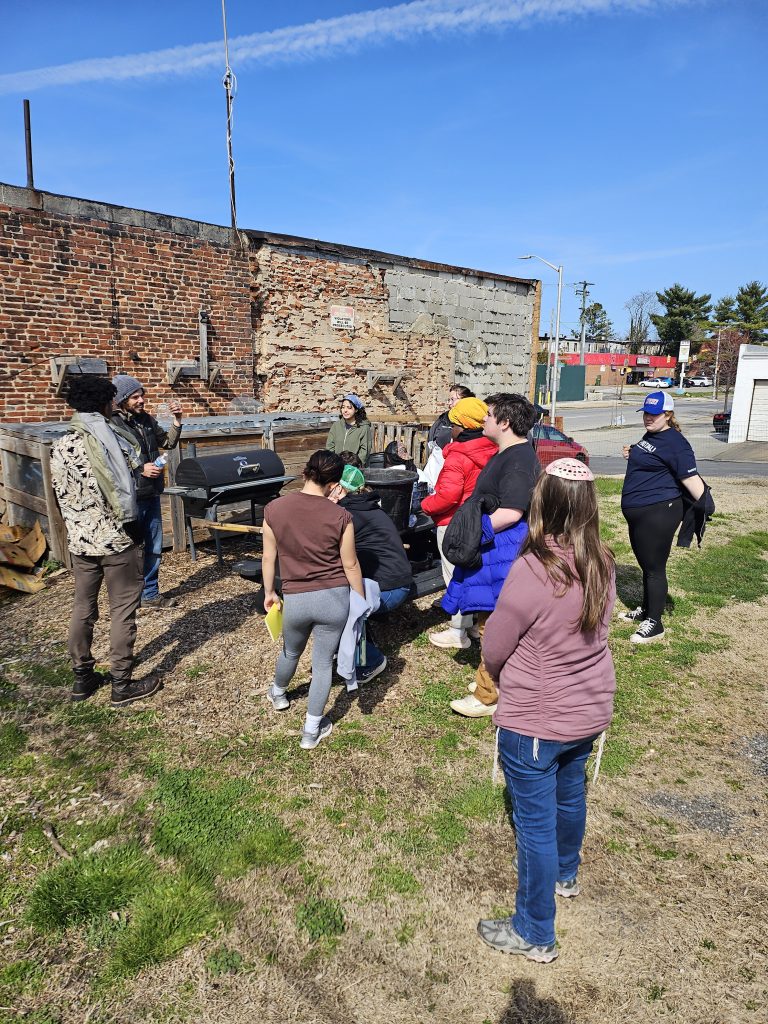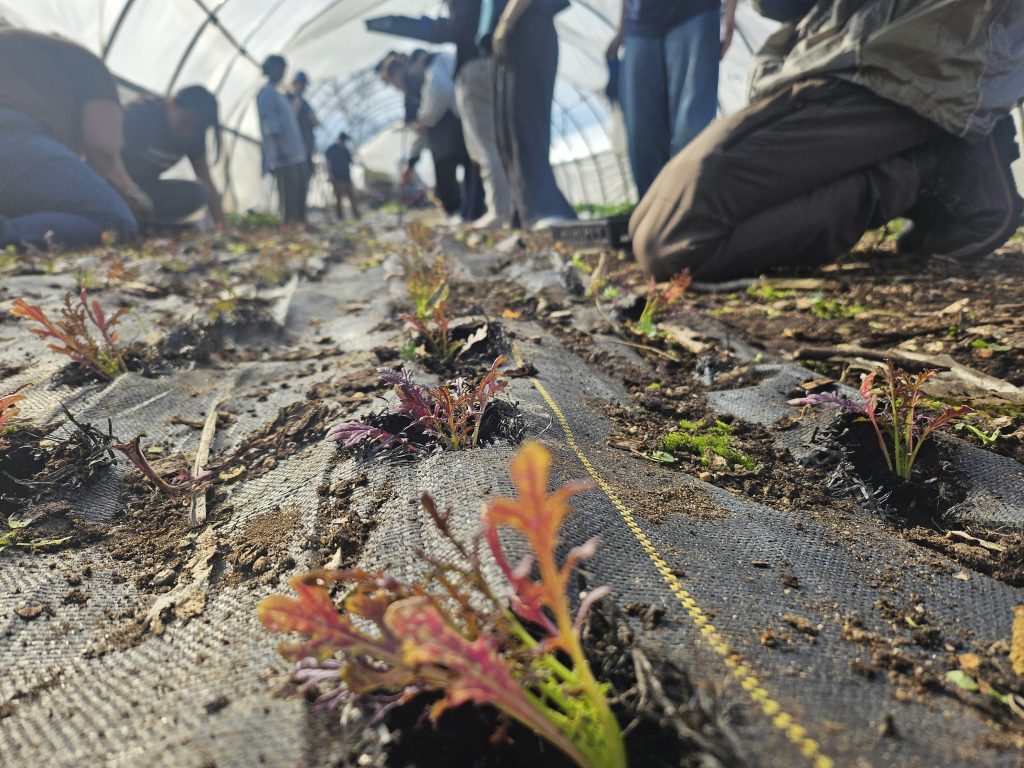Ibrahim Ware ’24
“They are not believers whose stomach is filled while the neighbor to their side goes hungry.”
-Prophet Muhammad

On what was a beautiful Tuesday, the Food, Faith, and Justice cohort engaged in meaningful work and conversation in meaningful spaces. The first was the Strength to Love II Farm space, where we helped tend to the land along with our inquiries on urban agriculture, and its significance to Baltimore with regards to food security and sovereignty. The next space was the Islamic Society of Baltimore, a place where our group could delve into the Muslim community’s practices and perspectives on food justice in the midst of the holy month of Ramadan. Our engagement in these spaces were both physically, intellectually, and spiritually enriching, instilling in us a deep sense of curiosity, hope, and gratitude.

To place further emphasis on our farm activities, we spoke to the farmers about their experience, their mission, and their aspirations regarding their community impact. As they shared with us the meaning they derive from their work, we cultivated our own meanings as we assisted in the cultivation of the farm. Our farm work consisted of the harvesting of crops, the removal of weeds, and the planting of new seedlings. The latter was especially meaningful as the promise of the provision of sustenance accompanied every small plant we place in the cool earth. To be so intimately connected with the earth in that space and in that moment truly put things into perspective, allowing me and others to perceive care beyond ourselves, yet inextricably connected to ourselves at the same time. We need food, but food also needs us. To plant, to care, to protect, to sustain. Once we reconnect ourselves with this mutualistic relationship that has spanned the course of our history, we can truly begin to appreciate what a blessing it is to grow food that enlivens the earth, and the organisms that share the goal of thriving.

Following the farm, the cohort visited the Islamic Society of Baltimore, a mosque complex in the suburbs that was deeply committed to supporting the diverse Muslim community in the area. This visit was especially meaningful for me personally as a practicing Muslim experiencing the sacred month of Ramadan in a new city. To me the mosque signifies a sacred space of community, belonging, and similarly to the farm, a space of cultivation. Being able to enter that space and immediately feel a sense of comfort and commonality was deeply impactful to me. We met with Imam Yaseen, who gave us a concise tour and allowed us to observe the prayer space and the call to the afternoon prayer. The imam and I left the group briefly to perform the prayer and it felt good to be surrounded by my brothers and sisters in Islam for the first time in this special time of the year. We later reconvened with the group and discussed the efforts that are being made, and the intentions that are being set to deal with the issues of poverty and food insecurity within Baltimore and beyond. This allowed for members of our group to increase their understanding of the faith’s traditions and core messages, reinforcing the truth that we are all in this together and there is much work to be done. Particularly in the context of Ramadan, in which Muslims including myself do not intake food or water throughout the day, taking time to discuss and reflect on what I call practiced empathy, allows us to think deeply on our own privileges and our connections to Allah (God) and creation. This time forces us to confront our impulses and count our blessings. When I break my fast at the fleeting light of the setting sun, I give thanks. I give thanks to all those who were, and are involved in our ongoing learning, and I give thanks for the opportunities that we shared, as well as the opportunities that will emerge, promising a positive and meaningful change in our world.